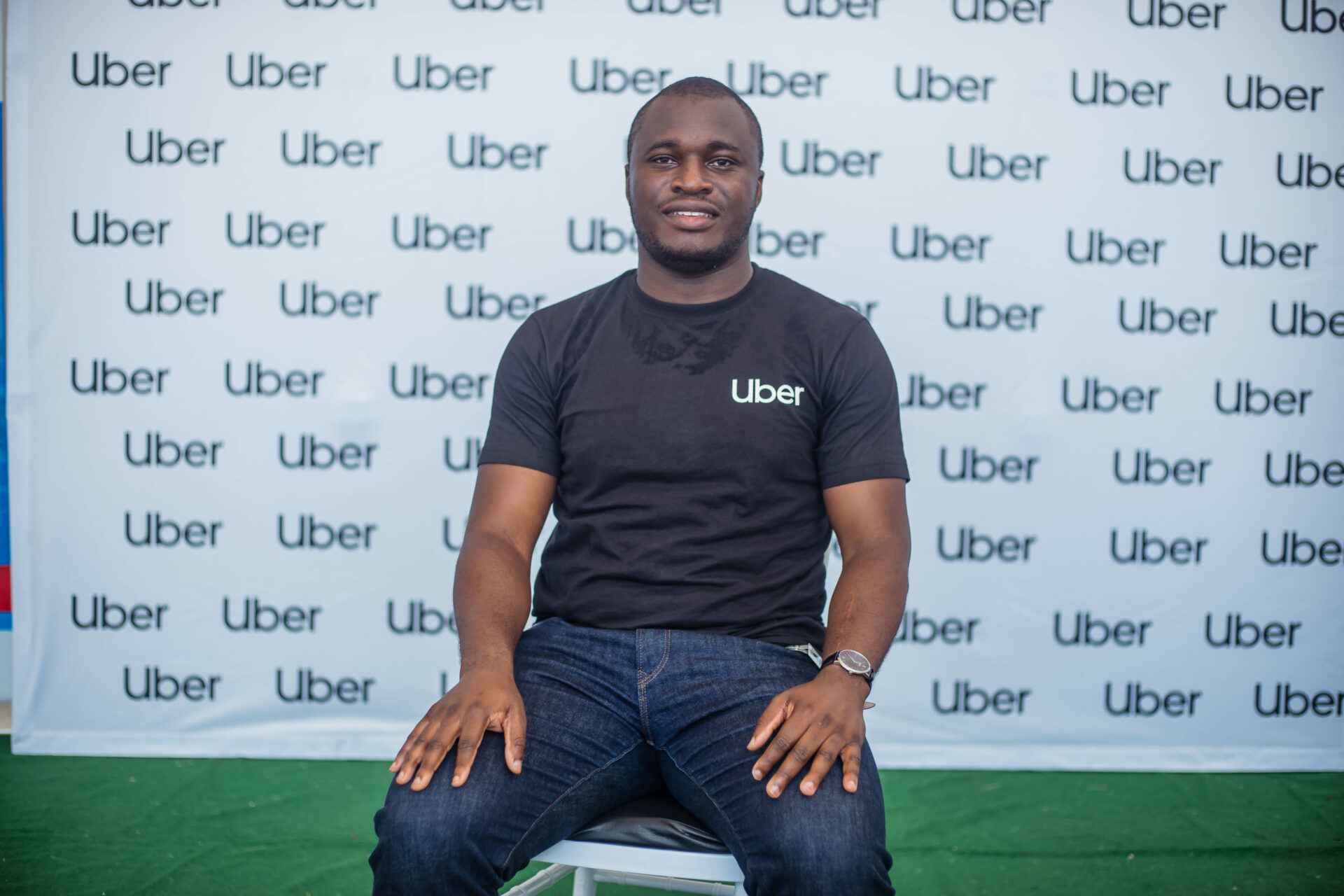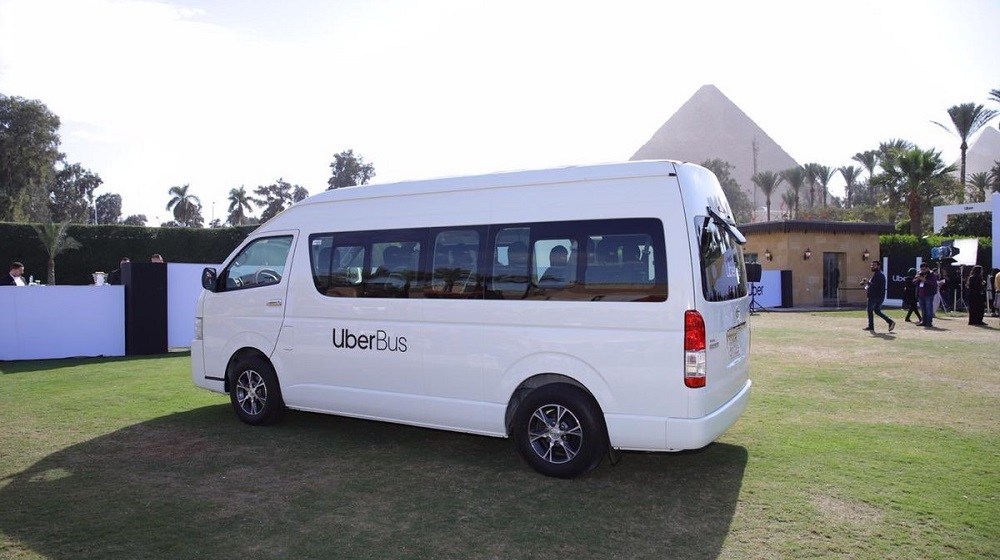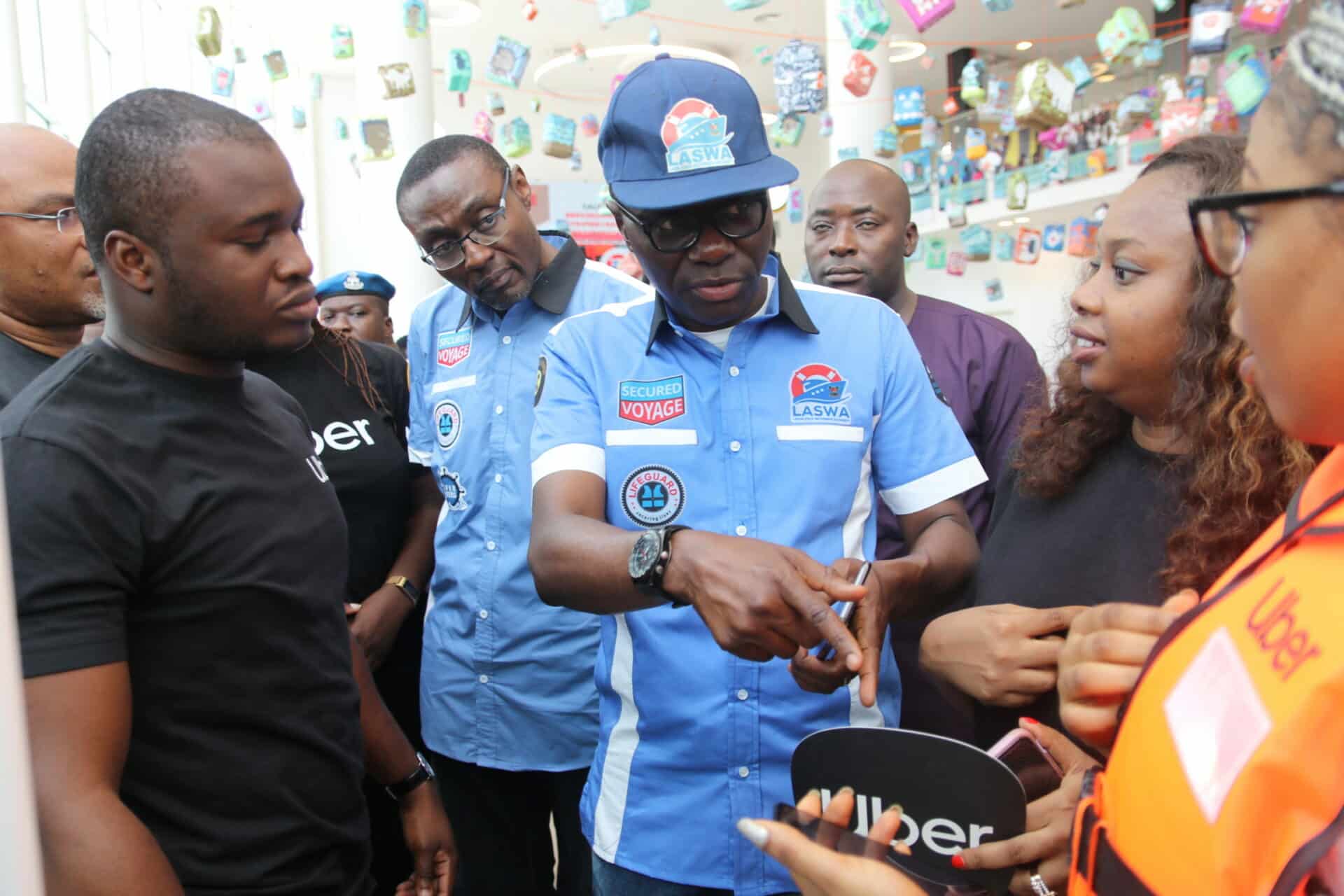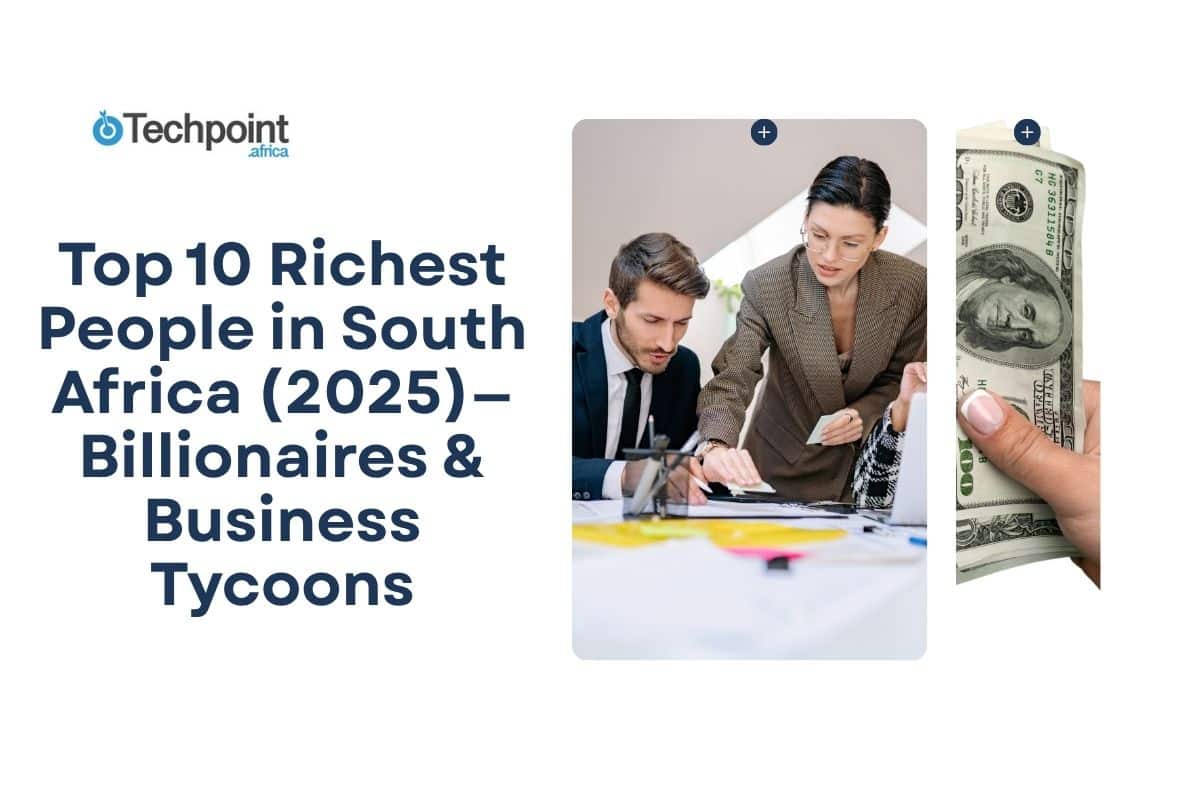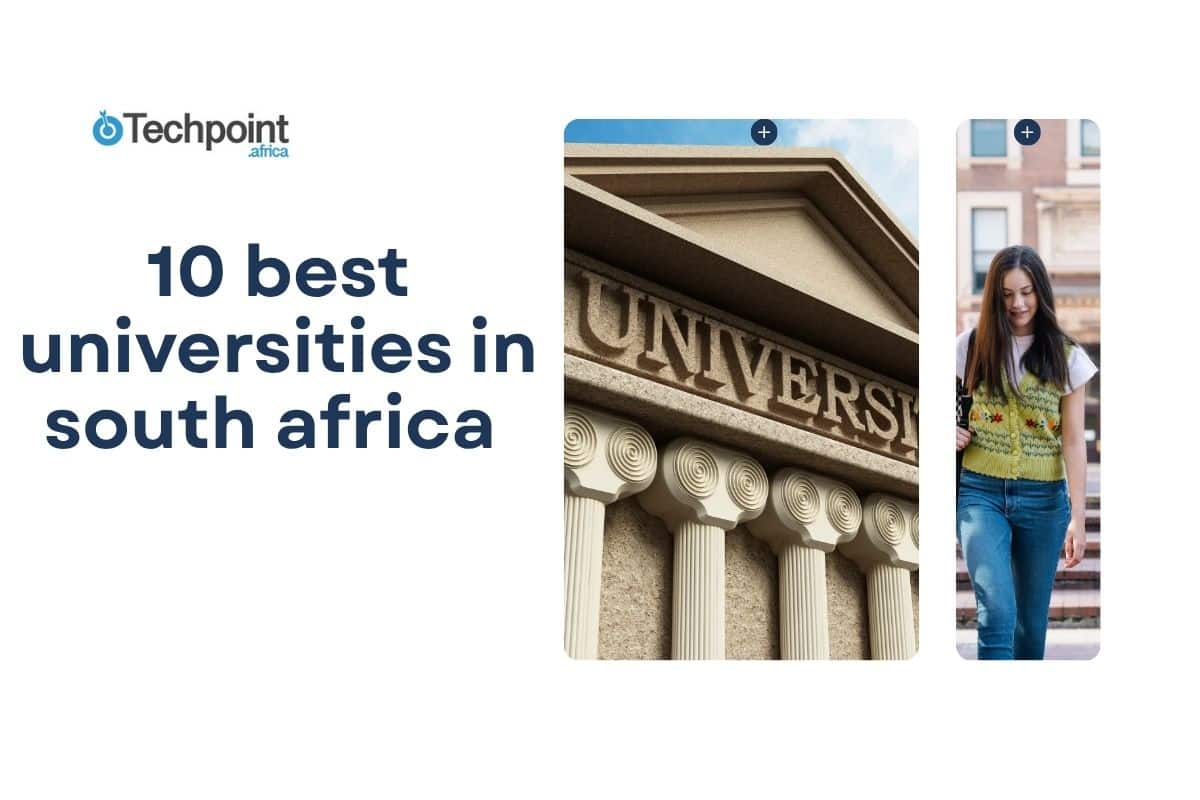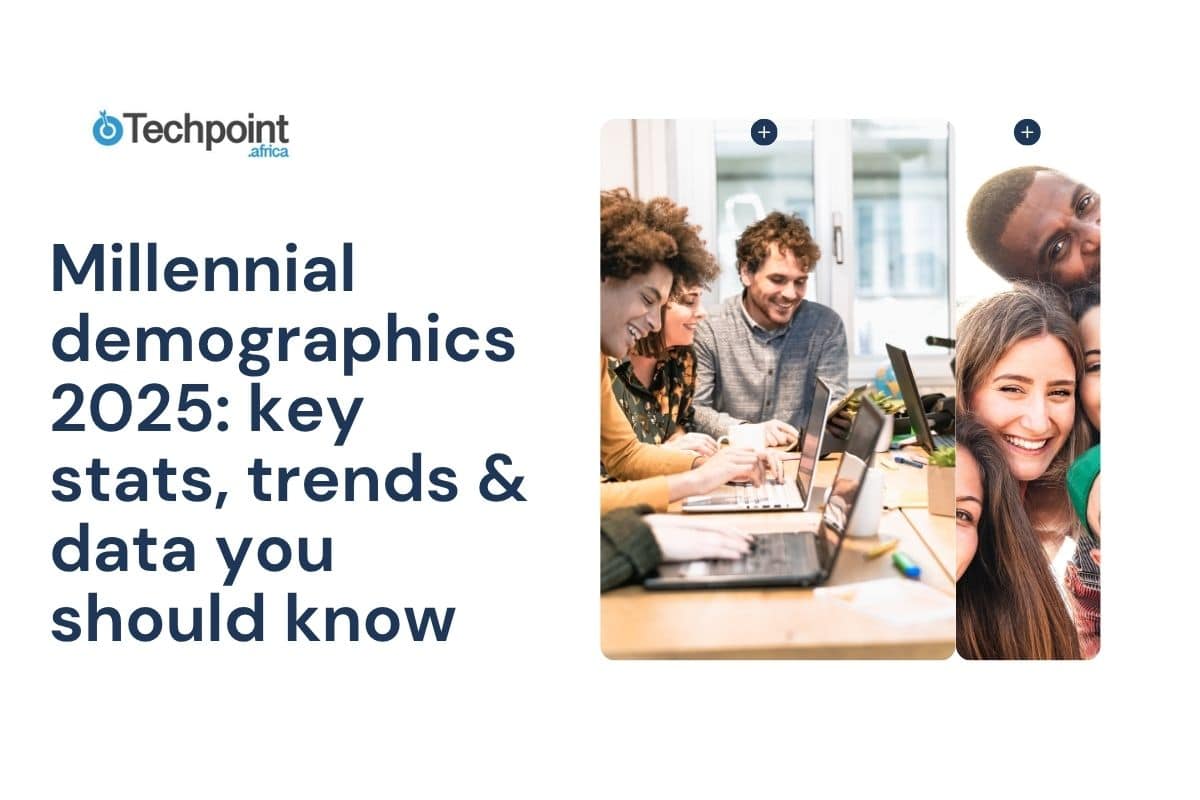When global ride-sharing company Uber first launched in Lagos, Nigeria in 2014, it changed the way people in the metropolitan city moved around. Shortly after, it launched in Abuja and then in Benin city in July 2019.
With Uber’s taxi-hailing service now operating in three major Nigerian cities, the company isn’t stopping there.
In September 2019, it announced plans to launch UberBus, its public bus system in Lagos.
And earlier this month, it launched UberBOAT, its boat taxi service in partnership with Texas Connection Ferries, a Lagos-based ferry transportation service, and the Lagos State Waterways Authority (LASWA).
At the forefront of the launching of Uber’s new products and operations in Nigeria is Tayo Oyegunle, the company’s Country Director. Tayo is responsible for all of Uber Nigeria’s operations in Lagos, Abuja and Benin City.
He joined Uber in 2017 as Operations Manager, rose up the ranks and was appointed Country Manager in April 2019. In an email interview with Techpoint, Tayo Oyegunle talks about his experience with running the affairs at Uber Nigeria and his vision for the company.
Before you joined Uber, you worked with a couple of FMCGs as a research analyst, how was the crossover to tech like for you at the beginning?
I have always been interested in how data plays in consumer tech, as well as existential questions on the future of work, marketplaces decoupling, and the future of social networks.
Before Uber, I was a top-ranked research analyst at CSL Stockbrokers focusing on multinationals in the consumer space. My research coverage included companies such as Nestle, Unilever, and PZ Cussons.
The crossover was both compelling and stimulating, as it allowed me to understand from a grassroots perspective, that technology spans in almost all business functions.
At Uber, I’m in a constant state of learning – from our partners, riders, from my team, and from the cities we work with every day. I love that it’s my job to be inquisitive and that I get to reset my convictions with every new partner that we meet and the technology that we explore.
How are the experiences you gained in that industry helping you at the moment?
I work across three cities across Nigeria and need to ensure that all items are ticked off and that each region performs optimally. I’m extremely data-driven and bring in intellectual breadth, coupled with a lot of operational experience.

I believe all problems are solvable. I believe creativity, teamwork and iteration can break through walls. With strong research and a tenacity to never give up, almost all issues are adequately solvable.
You manage the affairs of Uber in three cities in Nigeria. From your experience, what is the current state of ride-hailing in Lagos, compared to Abuja and Benin City?
Our time operating in Lagos has reinforced to us that this is a high-growth smart city, with an important role to play in the African economy. Lagos is a mega-city, an innovation leader and a powerful driver for Africa’s largest economy. It is only fitting that the city has a smooth-running, world-class public transport system to match.
The dense population and resulting heavily used roads, requires sustainable solutions to help solve the traffic congestion experienced. Uber in Lagos continues to perform greatly and grows daily with more driver-partners wanting to join the app and more riders using it to get to most places within the city.
Abuja and Benin both are well-performing cities with both regions also experiencing growth. We have worked heavily with government in all cities to help connect the locals with Uber as a means of earning opportunity, as that is a major focus for us in all the cities we operate.
Did the recent boom of the motorcycle-hailing industry in Lagos affect ride requests on Uber in any way? If yes, how?
It (motorcycle-hailing) is a great way to provide individuals who may not exactly have the means to afford a vehicle to conveniently provide rides, at a fraction of the cost. Maintenance and fuel costs are lower therefore making it easier and more affordable.
With the rapid pace of innovation within the fourth industrial era, trends such as mobility, cloud computing, and big data analytics are leading to the formation of business whose platforms are helping countries make transportation more reliable, safer, more affordable, and agile enough to respond to unique local needs.
At Uber however, we are focusing our efforts on building the best possible products (UberX) to serve Nigeria. Safety has always been our top priority and any product we bring into the city will need to have the highest of safety measures available.
We believe in open and constructive dialogue with everyone in the future of urban transport. We hope tourists, business travellers and residents alike can enjoy a safe, affordable, hassle-free time travelling however they choose to get around their cities.
Uber recently launched UberBOAT in partnership with LASWA and Texas Connection Ferries. In what capacities are these partners involved in UberBOAT? And what are the plans for after the pilot stage?
At this time, UberBOAT will only be launched in Lagos as a two-week pilot. Thereafter we will assess the feasibility of the product and decide whether or not it makes sense to extend.
Over the last several years, we’ve built lasting partnerships with public transportation agencies around the world, because we understand how important it is to build on regulatory frameworks that modern cities provide.
LASWA’s vision is to transform Lagos into a model city with world class inland waterways infrastructure and services that help expand and improve access to urban mobility. We believe our app can help ensure this vision is brought to more people of Lagos State.
What other challenges in the Nigerian transportation system is Uber planning to solve?
The power of technology and collaboration is vital in building the transport systems of the future. Nigeria is a country at the forefront of urbanisation, with over 200 million people expected to live and work in its cities in the next 40 years; more than triple the size of its current urban population.
This rapid change presents a serious challenge for the country’s transport system. According to research, the average commuter in Lagos now spends over three hours in traffic every day. While a new system would require significant time and investment to implement, the technology required to power the Lagos transport of the future already exists today.
For this change to occur, it will require investment and the adaptation of existing transport structures. However, if business and government work together, we can create world-class, affordable systems that create jobs, improve efficiencies and reduce emissions. Our time operating in Lagos has reinforced to us, that this is a high-growth smart city, with an important role to play in the African economy.
Should we be expecting Uber Eats in Nigeria anytime soon?
We have no immediate plans of launching Uber Eats in Nigeria as we are focused on bringing the best possible service and building on the product, in South Africa and Kenya currently.
What are Uber’s expansion plans for other cities in Nigeria outside Lagos, Abuja and Benin City?
Uber’s ambition is to be everywhere – any progressive, forward-thinking city that has a need for safe, reliable and efficient transportation, we want to be there. We are part of a broader mobility movement, establishing smart cities of the future.
We are currently working hard to grow our business in Nigeria and Ghana and across the rest of West Africa, including Senegal and the Ivory Coast. Each city offers its own unique opportunities, we have found Nigeria to be defined by agility, creativity and adaptability.
Uber is all about providing access to safe, reliable and affordable rides at any time while providing flexible economic opportunities for drivers who want to be their own boss.
What is your vision for Uber in Nigeria?
I am excited about the growth opportunities in Nigeria and the rest of the African continent. I believe there is much potential because Uber provides an accessible means for entrepreneurs to become small business owners, thereby helping to improve the lives and futures of individuals, families and communities.
The Executive Governor of Lagos, Babajide Sanwo-Olu’s sentiments on the public transport system, combined with the seal of approval on UberBOAT illustrates that there is an appetite for multi-modal transportation in the country.
We are confident that with an improved public transport system and reduced congestion, Lagos’ economic growth and influence will be exponential.
And as we think about where we want our cities to be in the future, we know we can do more, and we will. Technology and data alone are not solutions for urban problems—but when done right, and in partnership with others, they have the potential to contribute to a better world for all. We’re excited to move forward with cities.

